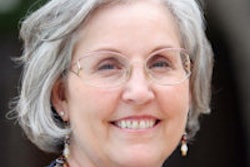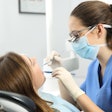The New Hampshire Department of Health and Human Services (DHHS) has released the findings of a new survey that finds seniors in the state with the poorest oral health are those who are economically disadvantaged and have conditions that affect their ability to eat and also may impact their overall health.
The DHHS Division of Public Health Services, Oral Health Program released the results of the 2014 Oral Health Survey of New Hampshire Older Adults, which is based on data collected at 25 senior centers and congregate meal sites in the state. Altogether, 610 adults 60 years and older were screened; 38 adults received restorative treatment using New Hampshire Bureau of Elderly and Adult Services funds.
According to the survey results, 18.9% of older adults are in need of "early or urgent dental care" that may be difficult to access because of financial and transportation issues. Less than 19% of older adults have some type of dental insurance to help pay for routine dental care, 28.0% of older adults have no functional top to bottom tooth contact, and almost 16% of older adults have lost all of their natural teeth. Additionally about 5.2% of individuals with no teeth also have no dentures, more than a quarter of older adults have untreated decay or root fragments, and 6.8% are in need of periodontal care.
"Oral diseases and conditions are common among our New Hampshire seniors, many of whom grew up without the benefit of community water fluoridation and other fluoride products," said José Montero, MD, director of public health at DHHS, in a statement. "This survey illustrates that New Hampshire seniors with the poorest oral health are those who are economically disadvantaged and live in the most rural parts of our state. This is not a cosmetic issue. Our seniors have conditions that impact their ability to eat and may impact their overall health."
The National Association of Chronic Disease Directors funded this survey, and the New Hampshire Bureau of Elderly and Adult Services provided funding from its Title IIID Older Americans Act allocation for all dental treatment referrals resulting from the survey.



















